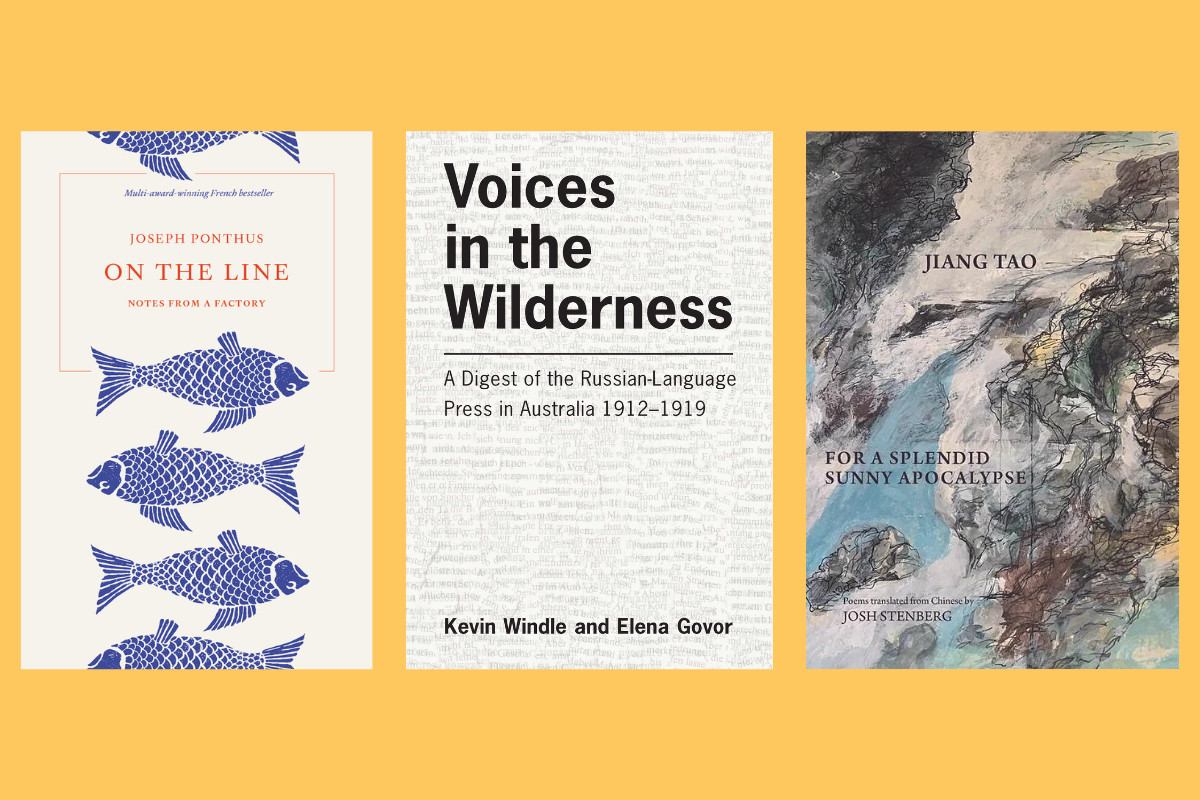Medal for Excellence in Translation
The Medal for Excellence in Translation is a major national award that recognises outstanding achievement in translation and the vital role of translators and translation in Australian culture and scholarly discourse. Established in 2016, it is awarded biennially for a book-length translation into English of a work of any genre (including scholarship), from any language and period.
Eligibility
- Nominations will be accepted from the publisher of the translation (not necessarily Australia-based), another individual, or the translator her/himself. The Nominator must obtain the permission of the Nominee before nomination.
- Nominees must be Citizens or Permanent Residents of Australia who are residing in Australia at the time of nomination.
- Multi-authored translations are eligible for nomination provided that all nominees on the application are Australian citizens or permanent residents.
- Translations published as books, or e-books, are eligible. All nominated works must be publicly available and have an ISBN.
- The translation must be into English.
- The translation must have been published within the three calendar years prior to the deadline for nominations.
- In cases where there are multiple editions of a translation, published in one or more countries, only the first translation into English will be accepted.
Criteria
- Excellence of translation: The nominated work will be judged on the basis of its success in conveying the style, spirit, effects, meaning and cultural context of the original. An Advisory Panel will consider, as appropriate, special challenges posed by the form, style or content of the original; the extent to which the translator shows an understanding of these challenges and adopts creative solutions to them; and the extent to which the translator has appropriately adapted the work to the frame of reference of its new audience.
- Significance of the translated work: The importance of the source text as a work of literature, scholarship or as a cultural document.
Nominations
Nominations for the 2024 round have closed. Enquiries may be directed to grants@humanities.org.au.
A shortlist will be announced 2 September 2024.
Medal History
The Medal for Excellence in Translation is a major national award that recognises outstanding achievement in translation. Established in 2016, this award celebrates the vital role of translators and translation in Australian culture and scholarly discourse.
This major award was established with the generous support of the Copyright Agency’s Cultural Fund, Monash University, the University of Melbourne and the University of Western Australia.
Past recipients
The inaugural medal was awarded in 2016.
Recipient
Stephanie Smee for On the Line: Notes from a Factory by Joseph Ponthus (Black Inc Books, 2021), amulti-award-winning French bestseller that brings poetry to the factory floor.
Shortlist
Josh Stenberg for For a Splendid Sunny Apocalypse by Jiang Tao (Zephr Press, 2023), a a selection from Jiang Tao’s funny and perceptive poetry.
Kevin Windle and Elena Govor for Voices in the Wilderness: A Digest of the Russian-Language Press in Australia 1912–1919 (Australian Scholarly Publishing, 2024), a translation of Russian newspapers which show us a body of immigrants struggling to establish themselves in what some had viewed as a ‘working man’s paradise’ and adjust to a new life.
Recipient
Robert Savage for Maria Theresa: The Habsburg Empress in Her Time by Barbara Stollberg-Rilinger (Princeton University Press, 2022), a monumental biography of eighteenth-century Habsburg empress, Maria Theresa.
Shortlist
Josef Tomáš and Alex Skovron for Elegies by Jiří Orten (Pardubice: Knihy s úsměvem, 2019), a special bilingual edition of the Elegies of Jiří Orten – the complete Czech text with a new English translation – has been published to coincide with celebrations of the hundredth anniversary of the author’s birth on 30 August 1919.
McComas Taylor for The Viṣṇu Purāṇa : ancient annals of the god with lotus eyes translated from the Sanskrit (ACT: ANU Press, 2021), is a blank-verse rendering of a 1500-year-old ‘history of everything’ and guide to life.
Recipient
Penny Hueston for Being Here: The Life of Paula Modersohn-Becker by Marie Darrieussecq (Melbourne: Text Publishing, 2017), an account of the life of ground-breaking Expressionist painter Paula Modersohn-Becker.
Shortlist
Paul Gibbard for The Dream by Émile Zola (Oxford: Oxford University Press, 2018), a major new translation of the sixteenth novel in Zola’s Rougon-Macquart series, and the first substantial critical edition.
Omid Tofighian for No Friend but the Mountains by Behrouz Boochani (Toronto: Anansi, 2019), an autobiographical account of Boochani’s perilous journey to Christmas Island and his subsequent incarceration in an immigration detention facility on Manus Island.
Recipient
Julie Rose for Simon Leys: Navigator Between Worlds by Philippe Paquet (La Trobe University Press/Black Inc. Books, 2017)
Shortlist
- David Holm for Hanvueng: The Goose King and the Ancestral King, An Epic from Guangxi in Southern China (Brill, 2015)
- Geoff Wilkes for The Greater Hope by Ilse Aichinger (Königshausen and Neumann, 2016)
Professor John Minford, for his translation of I Ching (Yijing): The Book of Change, from Chinese to English.



